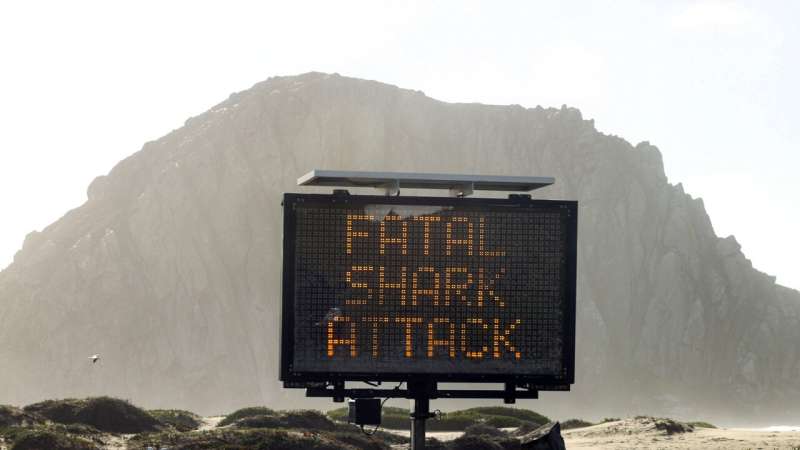Researchers: Shark attacks increase after 3 years of decline

Shark attacks increased around the world in 2021 following three consecutive years of decline, though beach closures in 2020 caused by the COVID-19 pandemic could be making the numbers seem more dramatic than they are, officials said Monday.
Researchers with the International Shark Attack File recorded 73 unprovoked incidents last year, compared to 52 bites in 2020, according to a new report. The research is administered by the Florida Museum of Natural History and the American Elasmobranch Society.
International Shark Attack File manager Tyler Bowling pointed out that 52 bites in 2020 were the lowest documented in more than a decade. The 73 bites in 2021 more closely align with the five-year global average of 72.
"Shark bites dropped drastically in 2020 due to the pandemic." Bowling said in a statement. "This past year was much more typical, with average bite numbers from an assortment of species and fatalities from white sharks, bull sharks and tiger sharks."
Researchers saw a total of 11 shark-related fatalities last year, with nine considered unprovoked. Australia led the world with three unprovoked deaths, followed by New Caledonia with two. The United States, Brazil, New Zealand and South Africa each had a single unprovoked fatal shark attack.
Unprovoked attacks occur when there is no human provocation. Provoked attacks are defined as when humans initiate contact, such as divers trying to touch a shark or fishermen removing a shark from a fishing net, according to the International Shark Attack File.
Florida has led the U.S. and the rest of the world in unprovoked shark bites for decades, and the trend continued in 2021, researchers said. Florida had 28 unprovoked bites last year, compared to 19 in the rest of the U.S. and 26 total outside the U.S. This is consistent with Florida's most recent five-year annual average of 25 attacks. Of Florida's 28 unprovoked bites, 17 were in Volusia County, which includes Daytona Beach.
The single fatal unprovoked shark attack in the U.S. in 2021 was in California. A man was killed while boogie boarding in Morro Bay on Christmas Eve.
More information: www.floridamuseum.ufl.edu/shar … y-worldwide-summary/
© 2022 The Associated Press. All rights reserved. This material may not be published, broadcast, rewritten or redistributed without permission.



















